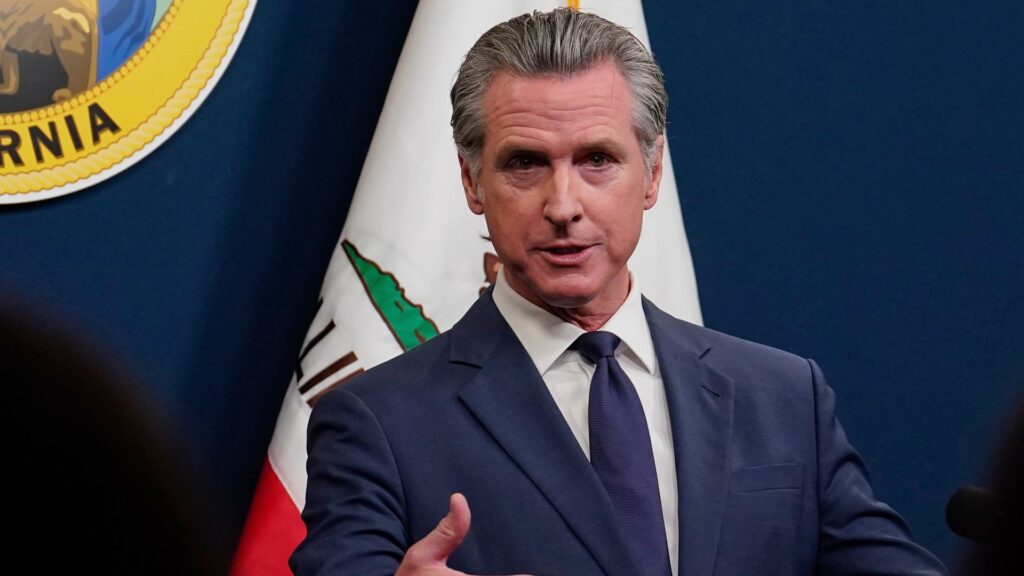Gov. Gavin Newsom proposed cutting funding for California newsrooms by 67%, reducing the state’s contribution from the expected $30 million to $10 million for the 2025-2026 fiscal year that begins July 1. The funding cut affects a new, high-profile deal with Google to support local news outlets through what’s called the News Transformation Fund.
The proposed funding reduction is just one piece of a proposal to confront a mounting deficit. Initially considered a pioneering step to preserve local journalism, the state’s contribution to the fund could fall prey to its effort to rebalance its spending priorities amid a projected $12 billion operating budget deficit.
Budget pressures drive funding reduction
The California Department of Finance confirmed the reduced payout to the Los Angeles Times on Wednesday, May 14, citing fewer available resources than projected in the state’s budget proposal. According to the department’s spokesperson, H.D. Palmer, the “sole reason” for the cut is the limited funding available amid a worsening fiscal outlook.
Newsom’s administration projected a $12 billion shortfall in the state budget for the coming fiscal year, forcing widespread adjustments across key state programs. The updated $321.9 billion spending plan includes reductions in media support, social services, health care and labor costs.
Since establishing the fund, California journalists have questioned the fluidity of the state-stewarded funding.
“Tragically, today’s news was totally foreseeable,” Matt Pearce, former president of Media Guild of the West, wrote in a post to LinkedIn. “California’s unionized local journalists were fiercely critical of the Google settlement for exactly this reason — an unregulated charitable partnership would be vulnerable to budget pressures and backsliding at any moment.”
What is the News Transformation Fund?
The News Transformation Fund was born out of a joint agreement between the state and Google to contribute nearly $250 million to local newsrooms over five years, starting in 2025. Under the original plan, California committed $30 million in its first year, with $10 million annually over the following four years. Google agreed to provide $15 million in the first year and a total of $55 million over the same period.
The fund was intended to help local newspapers and news outlets continue operations that face declining revenues and shrinking staff. It stemmed from a legislative proposal known as the California Journalism Preservation Act, authored by Assemblymember Buffy Wicks, D-Oakland.
The effort was modeled after a similar Canadian policy requiring large digital platforms to financially support journalism.
As the law was debated, Google removed links to any news articles from California-based outlets.
Broader budget adjustments
Along with cuts to journalism funding, Newsom’s budget also scales back free health care access for immigrants living illegally in the state. The new plan limits Medi-Cal coverage to migrants illegally in the state under the age of 19, and only for those whose families meet income requirements in line with the broader Medi-Cal program.
Newsom’s proposal is projected to save $5.4 billion through the 2028-2029 fiscal year, according to the Los Angeles Times. The Times reported the state had to borrow $3.4 billion to keep Medi-Cal afloat through June. That’s in addition to the $2.8 billion appropriated through the current year’s state budget.
Almost 15 million Californians are eligible for Medi-Cal coverage, according to the state’s Department of Health Care Services. An estimated 1.6 million of them are migrants.
Another notable change in the revised budget is removing coverage for the weight loss drugs Ozempic and Wegovy from Medi-Cal, the state’s public health insurance program. These medications are currently covered, but would no longer be under the updated plan.
In higher education, the state’s public university systems will see a 3% funding cut, a smaller reduction than the nearly 8% Newsom initially proposed in early 2025.
The state faces a June 15 deadline for the legislature to pass the budget revisions.
contributed to this report.


